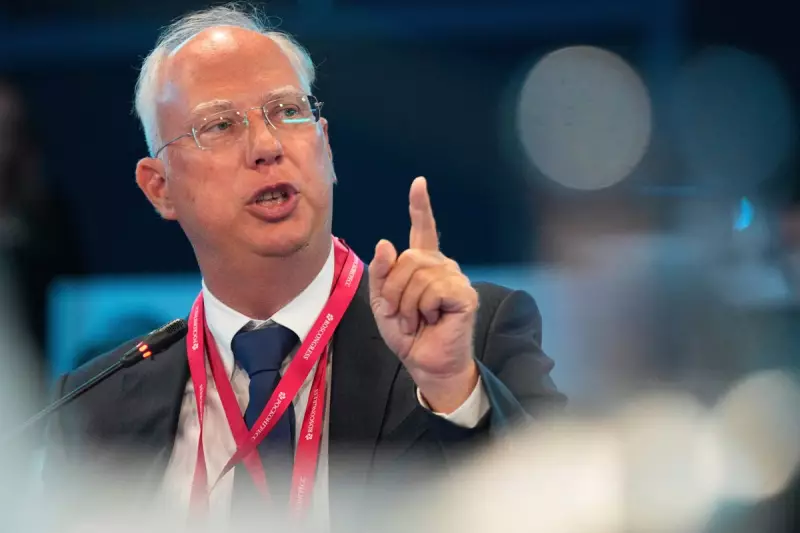
In a significant development in the ongoing conflict, Kirill Dmitriev, the head of Russia's sovereign wealth fund, has taken centre stage as a pivotal figure in drafting a new proposal aimed at ending Moscow's war in Ukraine.
Despite lacking formal diplomatic credentials, Dmitriev's unique background and connections have positioned him as a key player in these sensitive negotiations. His role underscores a modern approach to Russian diplomacy, leveraging his extensive experience in international finance and his network within Western business and political circles.
From Investment Banking to Back-Channel Diplomacy
Kirill Dmitriev is not a career diplomat. His professional history is rooted in the world of high finance. Born in 1975 in Kyiv, then part of the Soviet Union, Dmitriev's early exposure to the West began with a school exchange program in the United States.
He furthered his education at the prestigious Stanford University as an undergraduate and later earned an MBA from Harvard Business School in 2000. His career included roles at global giants like Goldman Sachs and McKinsey & Company.
However, it was his work in private equity within Russia and Ukraine that cemented his reputation. In 2011, he was appointed CEO of the Russian Direct Investment Fund (RDIF), a role that thrust him onto the global stage as he sought to attract foreign investment to Russia.
According to political analyst Anton Barbashin, Dmitriev became known as a savvy negotiator with a more modern, business-oriented touch than the older guard of Soviet-trained diplomats. He was particularly successful in forging closer financial ties with nations like Saudi Arabia and the UAE, earning his diplomatic stripes through deal-making.
Bridging the Gap with the West
Dmitriev's value to the Kremlin appears to lie in his ability to connect with Western counterparts, particularly those in the orbit of former US President Donald Trump. A former Russian diplomat, Boris Bondarev, who resigned in protest after the 2022 invasion, suggested that Dmitriev's lack of formal diplomatic training might be an asset.
"To work with him well, you need to find the right contact, someone who can win him over," Bondarev said, noting that Dmitriev's background makes figures like Trump's special envoy, Steve Witkoff, feel more at ease.
Barbashin elaborated, stating that Dmitriev "understands the Americans, specifically the Trump Americans: the business-oriented people who think in terms of profits, who think in terms of deals."
This back-channel role has historical precedent. The Mueller investigation into Russian interference in the 2016 U.S. elections revealed that Dmitriev met with Erik Prince, a major Trump donor, in January 2017 as the Trump administration was preparing to take office.
High-Stakes Connections and the Road Ahead
Dmitriev's influence extends beyond the boardroom. His wife, Natalia Popova, is deputy director of the Russian nonprofit Innopraktika, which is headed by President Vladimir Putin's daughter, Katerina Tikhonova. This connection, along with his professional history, led the U.S. Treasury to describe him as "a close associate of Putin" when it placed him and the RDIF under sanctions in 2022.
In February 2025, his role was formalised when he was named Russian special presidential envoy on foreign investment and economic cooperation.
Despite his current prominence, his position remains informal. Analysts caution that while success in the current Ukraine peace proposal would earn him significant favour with Putin, any draft agreement would be heavily edited and must receive final approval from the Kremlin.
Bondarev issued a stark reminder of the precarious nature of such back-channel roles, noting that Moscow can disown Dmitriev "at any moment." For now, however, this investment banker-turned-envoy remains a central, if unconventional, figure in the quest to end the war in Ukraine.





